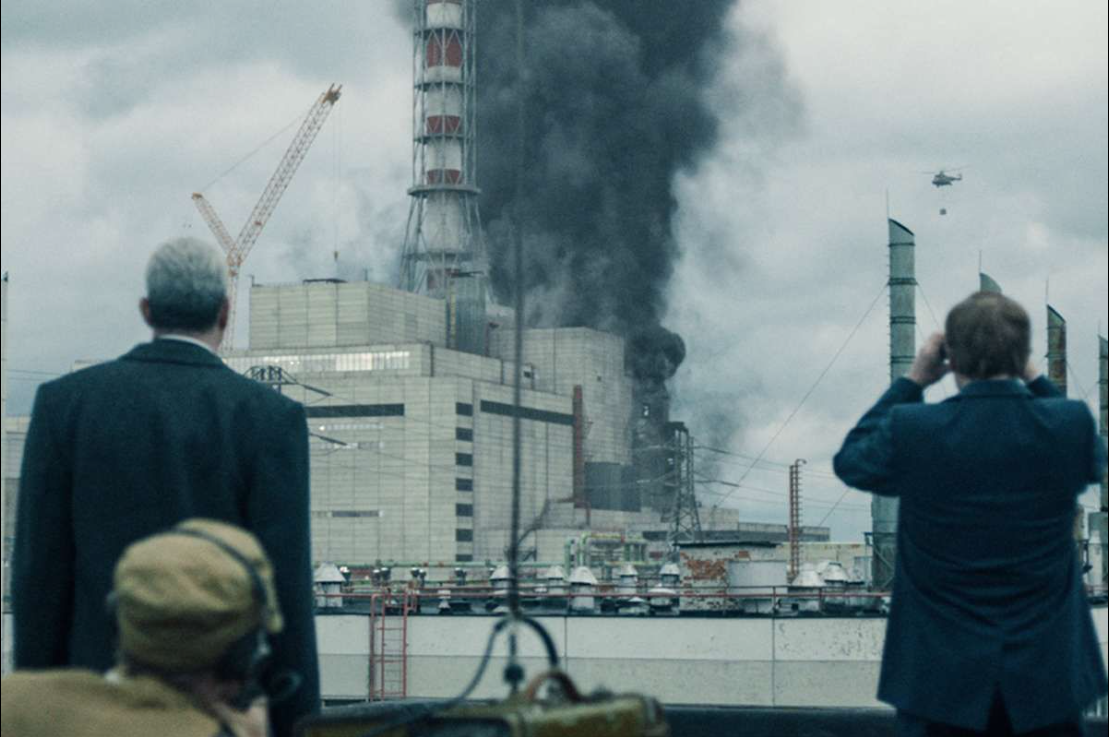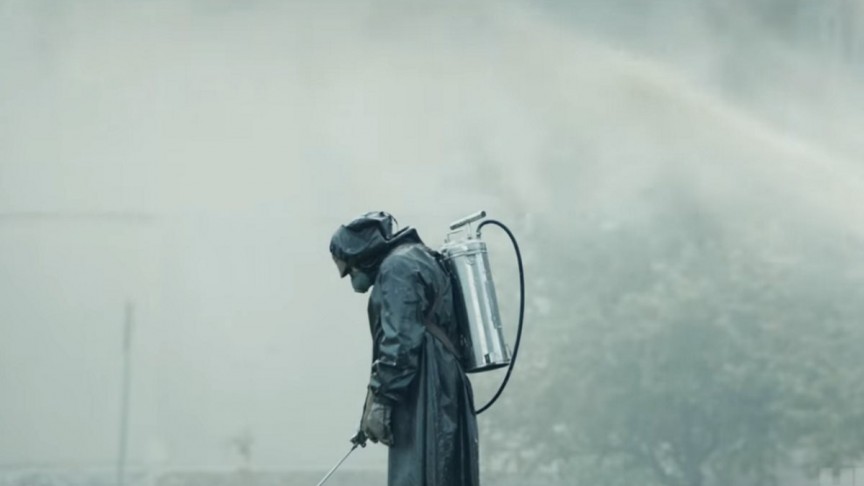Could Another Chernobyl Happen Today? Absolutely
Credit to Author: Tom Seymour| Date: Tue, 04 Jun 2019 14:11:14 +0000
No one in The Soviet Union thought it possible. But the largest release of nuclear fall-out in the history of humanity seemed to be prophesied in the Bible’s New Testament.
The Book of Revelations tells us that a star will fall from the sky, poisoning the rivers and springs of the world below. “Many people die,” it says. The Bible names the star as Wormwood, which translates into Ukrainian as “Chornobyl.”
Chernobyl is the catastrophe that hangs over every plea for an environmentally sustainable future. How can we provide almost seven billion humans, many of whom still live in poverty, with the energy and resources they need to live a dignified life, while stemming our reliance on fossil fuels? Can we provide the massive amounts of energy humanity needs just through renewables?
These conversations have increased in urgency thanks to the popularity of HBO’s Chernobyl, which concluded last night.
The five-part miniseries takes us back to the city of Pripyat, Ukraine, in the early morning hours of April 26, 1986. It shows the city’s citizens woken by a sudden explosion at reactor number four of the nearby Chernobyl plant. It shows the first-responders who attempt to quell the fire in the reactor’s core, and who then lie putrefying in hidden hospital beds as the burning plant spews a poisonous cloud over the entire region. It follows the scientists who must try and convince the Moscow chain of command that, if the other seven reactors at Chernobyl follow suit, the whole of Eastern Europe will become an uninhabitable nuclear wasteland for roughly the next 20,000 years. It shows the many thousands of Soviet citizens who were drafted in, at huge personal risk, for the clean-up operation.

Thankfully, experts assure us, Chernobyl was the fault of the Soviet Union, where outright lying was prevalent at the highest levels of leadership. Where authority was abused by a governing elite. Where an independent media was drowned out by propaganda and the willful dissemination of false information. And where scientific research was dismissed or suppressed when it didn’t fit with the needs and wants of the people in charge.
Those who argue Chernobyl will never happen again also fall back on engineering. The reactor was fatally flawed from design onwards, they say. It was based on bad science. What’s more, the Soviet Union had been cooking the books for decades. Quite beyond the human errors in the control room, the plant was in a state of endemic disrepair—no modern nuclear plant would ever be permitted to go the same way under international oversight.
Arguing Chernobyl could never happen again has become commonplace in the west. As Google searches for Chernobyl spiked after the breakout success of the television series (which is the highest-rated show on IMDB in television history), the Nuclear Energy Institute—the policy arm of America’s nuclear technology industry—released a fact sheet assuring the American populous of the rigorous safety of their reactors in comparison to Chernobyl. It even ran advertisements on Google searches for Chernobyl stating that “we need nuclear.”
But of course a Chernobyl could happen again. The laws of probability almost dictate that something like it will happen again.
Nuclear reactors are, by their very definition, immensely difficult to control. They’re complex and require constant upkeep. They are frequently the stated target of terrorists. And they are vulnerable to the freak weather events and seismic shifts that, thanks to our warming of the climate, are rapidly increasing in regularity and scale.

To think we can exert our will on something as powerful and unpredictable as the core of the sun is hubris. As the HBO series brilliantly dramatizes, the officials in the Chernobyl control room could not wrap their heads around the fact their reactor had just exploded into the night’s sky. When a tsunami hit Japan’s Fukushima plant in March 2011, investigations found lax regulations and a company that was slow to make safety improvements made the plant particularly vulnerable. Some of the same systemic problems that plagued Chernobyl—human hubris and complacency, regulatory capture, and self interest in minimizing attention on a disaster—still plague modern society.
Fukushima’s close call and the memory of Chernobyl haven’t deterred the governments of the world from investing in nuclear. Nuclear power plants are currently being built in every major continent in the world. In Murmansk, Russia, the first floating nuclear power plant is under construction in the ocean. Fifty-four power plants are currently under construction in 16 countries, of 454 active plants in the world. (In the United States, the rate of new nuclear power plant construction has slowed to a crawl, and after Georgia’s beleaguered Vogtle plant becomes operational, it may be many years until we see a new plant.) This is at a time of increasing nationalist authoritarianism and the subsequent weakening of the bilateral accords designed to keep reactors safe, transparent, and under the aegis of international cooperation.
There’s little doubt that the Soviet reaction to Chernobyl was cynical. There was radio-silence from Moscow until April 28th, when the politburo made a 15-second statement on the evening news: “There has been an accident at the Chernobyl nuclear power plant.” It noted that “assistance has been provided” to those affected and that “an investigative commission has been set up.”
A few days afterwards, Moscow News, an authorised publication of the politburo, ran an article with the headline: “A Poisoned Cloud of Anti-Sovietism.” The article railed against “a premeditated and well-orchestrated campaign” that intended “to cover up criminal acts of militarism by the USA and NATO against peace and security.” Little has changed. Recently, RT, the Russian propagandist TV network and publication, dismissed the HBO series as “fundamentally phony.”
Yet, beneath the governmental negligence, the series also tells a more hopeful story. The clean-up operation around Chernobyl involved more than 600,000 people: some, without ever being named or recognized, can legitimately be credited for saving millions of lives.
Flippant as it might sound, the HBO series therefore dramatizes a success story. At vast and tragic human cost, ordinary people in the Soviet Union largely managed to quell the fallout at great personal cost. Although subsequent generations of innocent people from Ukraine and Belarus have suffered in unimaginable ways, the series ably demonstrates how close Chernobyl took Europe to the brink of almost total devastation, and how such unknown heroes brought us back from that brink.
Chernobyl is also a story of nature. Last November, I stood in front of the reactor without any protective clothing whilst reporting for Vice. Indeed, in a trip funded by the Ukrainian Cultural Foundation, I went to a rave in Pripyat.
For anyone interested in rewilding, then the exclusion zone should act as exhibit number one. In the months after the explosion, every animal in sight was killed and every withered tree razed. But, without the interference of humanity, what was the most dangerous place on earth has begun to recover. The summer months are alive with birdsong. Wolves, bears, lynx and boar, free of human predation, roam the woods. Even at minus six degrees and thick with snow, as it was when I was there, the roots and branches of trees still wind and push their way through the abandoned homes. In just 33 years, Chernobyl has been dramatically, joyously reclaimed by nature.
HBO’s Chernobyl series has brought nuclear energy into the national consciousness just as ongoing environmental protests like Extinction Rebellion and the student protests led by Greta Thunberg are successfully installing climate change in the news agenda.
But what is the alternative these movements are advocating? In America, fossil fuels provide 78 percent of the nation’s energy. In the UK, the figure is 52 percent, with 18 percent from existing nuclear plants. Chernobyl, Fukushima, and anti-nuclear activist movements have resulted in a slowing of nuclear investment in the United States; meanwhile, the power grid continues to be dominated by fossil fuels, not renewable energy. At the moment, nuclear power is still far-and-away the most efficient low-carbon energy generation solution. If we want to imagine a future without fossil fuels, then the proliferation of nuclear energy has to continue, in the global north and the global south, alongside and in partnership with a comparable revolution in renewables.
This article originally appeared on VICE US.